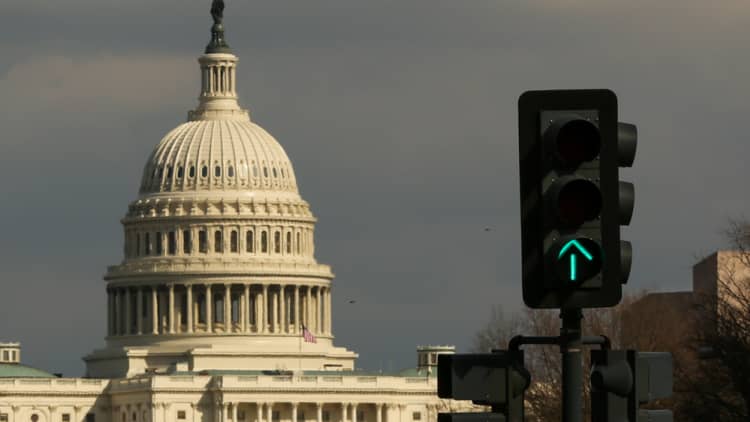
There is "nothing" in the legislation to overhaul Dodd-Frank that diminishes the regulations intended to curb risk-taking by large banks, Democratic former Rep. Barney Frank told CNBC on Tuesday.
The House passed the measure on Tuesday by a vote of 258 to 159. It now heads to President Donald Trump, who is expected to sign it into law.
"It does not in any way weaken the regulations we put in there for the largest banks or that were there to prevent the kind of crisis we had 10 years ago," said Frank, who co-authored the Dodd-Frank reforms after the financial crisis.
The legislation would raise the level at which banks are considered "systemically important" from $50 billion in assets to $250 billion in assets.
Critics such as Sen. Elizabeth Warren, D-Mass., and Sen. Bernie Sanders, I-Vt., slammed such a move. They contend it opens taxpayers up to more potential liability should a midsized bank fail.
Frank, however, agrees that the $50 billion threshold is too low. He also called $250 billion "too high."
"Lehman Brothers, when it failed, was $750 [billion]. Well, if two or three 250 [billions] were to fail, that could be problematic," Frank said on "Closing Bell."
"I regret that they went above $125 [billion]."
His major objection to the bill has nothing to do with Dodd-Frank.
He said the new bill weakens the reporting requirement on home mortgage disclosures over alleged racial discrimination.
Frank said, "Racial discrimination continues to be a serious problem here and for that reason I wouldn't have voted for the bill."
— CNBC's Jacob Pramuk contributed to this report.


